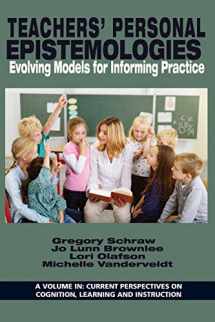
Teachers' Personal Epistemologies:: Evolving Models for Informing Practice (Current Perspectives on Cognition, Learning and Instruction)
Book details
Summary
Description
The focus of this book is to explore teachers' evolving personal epistemologies, or the beliefs we hold about the origin and development of knowledge in the context of teaching. The chapters focus on a range of conceptual frameworks about how university and field-based experiences influence the connections between teachers' personal epistemologies and teaching practice. In an earlier volume we investigated preservice and inservice teachers' beliefs and teaching practices (Brownlee, Schraw and Berthelsen, 2011). While we addressed the nature of teachers' personal epistemologies, learning and teaching practices, and approaches for changing beliefs throughout teacher education programs, the volume did not address conceptual frameworks for the development of teacher's personal epistemologies. To address this gap, the book is focused on teacher educators, teachers and teacher education programmers in universities with an overall aim of highlighting how we might support preservice teachers' involvement in learning that is challenging and inservice teachers' engagement in professional experiences that promote changes in teaching practice. We argue that teachers need to be encouraged to question their beliefs and develop increasingly sophisticated beliefs about their knowledge and their students' knowledge that facilitate learning and intellectual growth.


We would LOVE it if you could help us and other readers by reviewing the book
Book review



